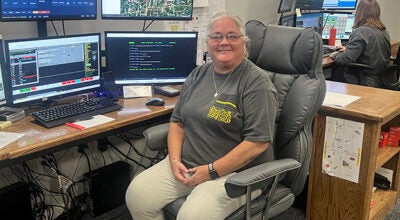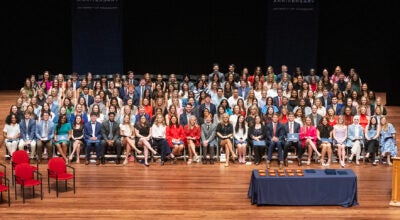Co-Lin, Delta State to partner for music industry classes
Published 12:30 am Saturday, April 14, 2018
Workforce development is critical. Science and mathematics are the skills of tomorrow. The nation requires more tradesmen.
That’s all true. But some folks just need to rock n’ roll.
Music and entertainment is big business, too.
Copiah-Lincoln Community College recognizes that. The school has entered into a “2+2” partnership with Delta State University that will create five new music industry undergraduate classes at Co-Lin that transfer into the Delta Music Institute, with the credits counting toward DMI’s Bachelor of Science in entertainment industry studies. DMI’s degree prepares students for careers in music and entertainment-related careers like audio engineering, multimedia technology, publishing, music agency, booking and other services surrounding the industry.
“We have had a lot of students who are excited about music, but not necessarily the performance of music. For those who want to be involved on the business side of the industry, the technology and production sides, this is a really food opportunity,” said Stephanie Duguid, dean of academic instruction at Co-Lin.
Beginning this fall, Co-Lin will offer basic computer skills for musicians, intro to music industry, fundamentals of music, music theory and survey of popular music, all 100- and 200-level undergraduate courses required for the degree at DMI. Students in the program will take one class per semester their first year and a half, and two classes for the final semester. All 60 credit hours are accepted at DMI.
Co-Lin was able to establish the Delta partnership by working through DMI director Tricia Walker, a Co-Lin graduate who worked out the details with her alma mater after other community colleges across the state began installing their own tie-ins to the DMI program.
While it’s not technically workforce development, Walker said the partnership seeks a similar goal — to develop talent and keep it in Mississippi.
“A lot of students back in the day, if you were going into the music business, you had to leave and go to one of the music centers. I went off to Nashville to make my career,” she said. “There wasn’t a curriculum back then. But we’re in the birthplace of America’s music right here in the Delta, and we’re really proud of that. It’s a great bargain to keep talented students in-state.”
Walker said DMI graduates join the creative economy with multiple skill sets, as seldom do workers in the entertainment business do “just one thing.” She said many DMI graduates are finding work in houses of worship, where there are technical demands — like big soundboards and audio systems — but little expertise.
“If you have 30 musicians working in a city, those are really 30 small businesses,” she said. “It absolutely is economic development. You have to think more entrepreneuraly.”
Outgoing Co-Lin President Ronnie Nettles said the school already sends a large number of students onto DSU, and many find their way into DMI. He said DMI is a unique program in Mississippi, and partnering with it makes sense.
“The music industry in Mississippi has great heritage,” he said. “Certainly we want to take advantage of opportunities to expand the industry and benefit our students.”





